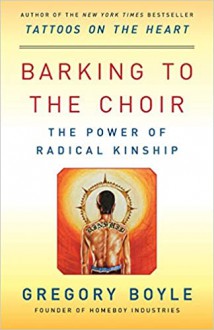In a moving example of unconditional love in difficult times, Gregory Boyle, the Jesuit priest and New York Times bestselling author of Tattoos on the Heart, shares what working with gang members in Los Angeles has taught him about faith, compassion, and the enduring power of kinship. In his...
show more
In a moving example of unconditional love in difficult times, Gregory Boyle, the Jesuit priest and New York Times bestselling author of Tattoos on the Heart, shares what working with gang members in Los Angeles has taught him about faith, compassion, and the enduring power of kinship.
In his first book, Tattoos on the Heart: The Power of Boundless Compassion, Gregory Boyle introduced us to Homeboy Industries, the largest gang-intervention program in the world. Critics hailed that book as an “astounding literary and spiritual feat” (Publishers Weekly) that is “destined to become a classic of both urban reportage and contemporary spirituality” (Los Angeles Times). Now, after the successful expansion of Homeboy Industries, Boyle returns with Barking to the Choir to reveal how compassion is transforming the lives of gang members.
In a nation deeply divided and plagued by poverty and violence, Barking to the Choir offers a snapshot into the challenges and joys of life on the margins. Sergio, arrested at age nine, in a gang by age twelve, and serving time shortly thereafter, now works with the substance-abuse team at Homeboy to help others find sobriety. Jamal, abandoned by his family when he tried to attend school at age seven, gradually finds forgiveness for his schizophrenic mother. New father Cuco, who never knew his own dad, thinks of a daily adventure on which to take his four-year-old son. These former gang members uplift the soul and reveal how bright life can be when filled with unconditional love and kindness.
This book is guaranteed to shake up our ideas about God and about people with a glimpse at a world defined by more compassion and fewer barriers. Gently and humorously, Barking to the Choir invites us to find kinship with one another and re-convinces us all of our own goodness.
show less

